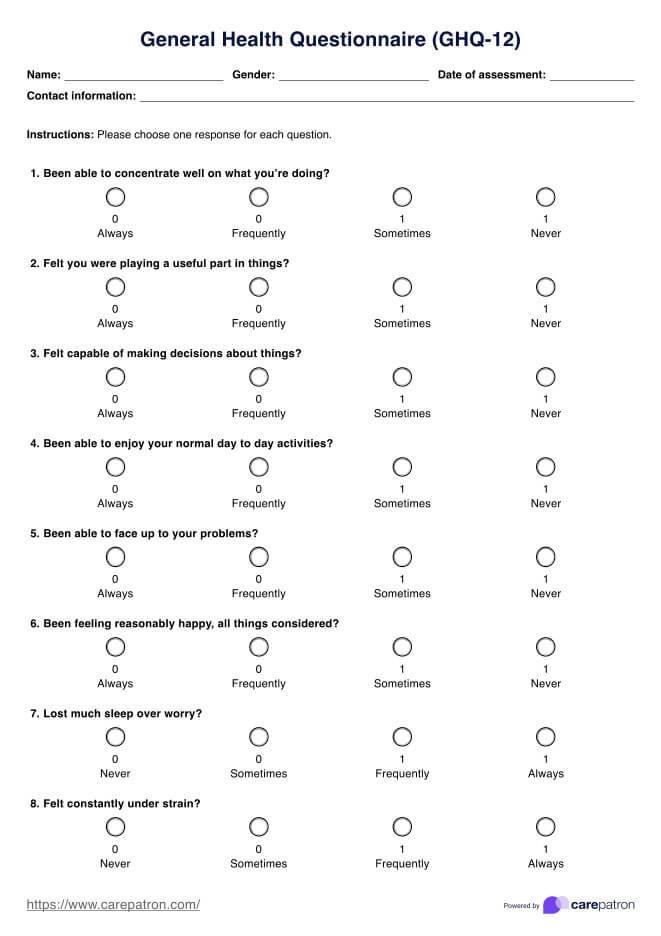The General Health Questionnaire (GHQ-12) is a widely used self-report screening tool used to assess an individual's psychological well-being and identify potential mental health issues. Comprising 12 items, the GHQ-12 focuses on recent experiences related to mental health, such as feelings of anxiety, depression, and stress.

General Health Questionnaire (GHQ-12)
Effectively screen psychological distress among patients by answering the General Health Questionnaire (GHQ-12).
General Health Questionnaire (GHQ-12) Template
Commonly asked questions
The GHQ-12 can be scored using two primary methods: bimodal scoring (0-0-1-1) and Likert scoring (0-1-2-3). In the bimodal method, responses are scored as 0 for the first two responses and 1 for the latter. The Likert method assigns scores from 0 to 3 based on the severity of the response. The total score can range from 0 to 36, with higher scores indicating greater levels of psychological distress.
Given that it asks more questions, the GHQ-28 covers more ground because it looks at psychological and even somatic symptoms that might contribute to the patient's psychological distress. This differs from the GHQ-12, which only has 12 questions pertaining to mental health. This makes the GHQ-12 great for quick snapshots of health, whereas the GHQ-28 provides insight into the bigger picture.
EHR and practice management software
Get started for free
*No credit card required
Free
$0/usd
Unlimited clients
Telehealth
1GB of storage
Client portal text
Automated billing and online payments











